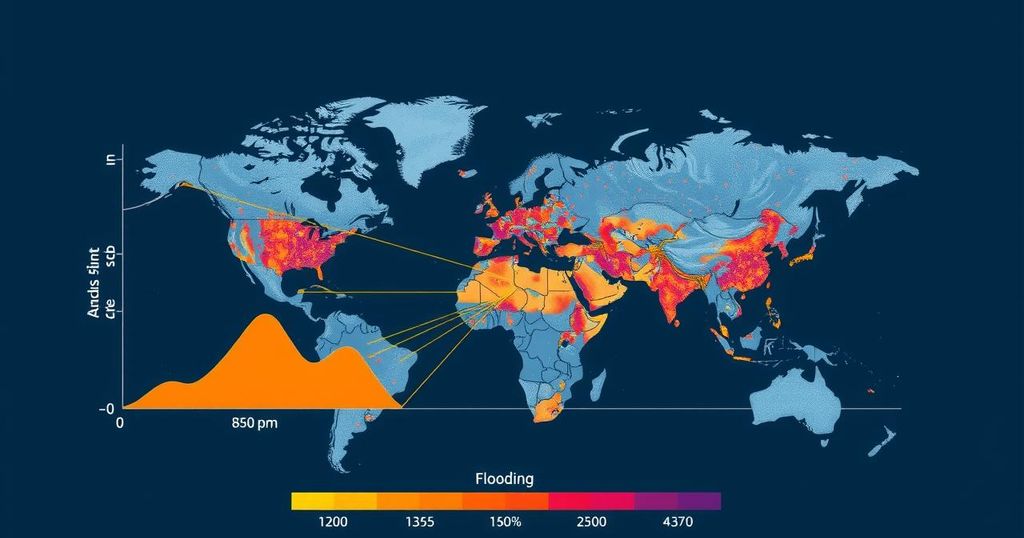Examining the Link Between Storm Bert and Climate Change

Storm Bert’s impact raises important questions about the link between climate change and the increasing frequency and intensity of storms and flooding. Climate change, driven by human activities, contributes to higher rainfall and storm severity, as seen with Storm Bert. Although specifics of the storm’s connection to climate change are still being studied, evidence supports the notion that such weather events are exacerbated by our changing climate. Furthermore, existing flood defenses may be inadequate in the face of evolving risks, highlighting a critical need for reevaluation of infrastructure and human practices.
Storm Bert recently impacted numerous regions across the country, prompting discussions regarding the increasing frequency of storms and flooding attributed to climate change. The scientific consensus affirms that human activities leading to carbon dioxide emissions are enhancing global temperatures. This rise in temperature results in higher evaporation rates and increased atmospheric energy, ultimately resulting in intensified storms and significant rainfall over limited areas during winter months.
As individuals and corporations continue actions contributing to climate change, it raises the question of whether Storm Bert’s impact was exacerbated by these factors. Notably, satellite imagery depicted Storm Bert as an atmospheric river, which concentrated rainfall in specific locations for an extended period. Such intense precipitation events are anticipated to occur more frequently due to climate change.
While typical reporting acknowledges the alignment of storms like Bert with warming trends, attributing a specific storm directly to climate change poses challenges. Nevertheless, advancements in research are equipping scientists with tools to measure the contributions of climate change to specific weather events. Recent floods in Colombia and Valencia, Spain, were notably described as predominantly impacted by human-induced climate change.
Although direct studies on Storm Bert have yet to be published, indicators suggest that climate change is influencing these weather patterns. Other contributing factors include deficiencies in weather forecasting regarding the storm’s intensity, and structural failures of flood defenses, as demonstrated in Tenbury Wells.
The case of Storm Bert highlights the need for adequate flood defenses as they are not infallible. Many existing structures, established with the best knowledge available at the time, may not withstand the heightened risks posed by climate change. The reality remains that despite the clear warnings and observed phenomena, current human activities, such as frequent air travel and vehicle use, continue largely unabated, as demonstrated during the recent COP29 global climate conference.
The discussion surrounding Storm Bert and its implications reflects broader concerns regarding climate change and its influence on weather patterns. Climate change is primarily driven by human activities contributing to greenhouse gas emissions, leading to an increase in average global temperatures. This environmental shift affects numerous atmospheric conditions, prompting the necessity for more rigorous examination of extreme weather events and their potential links to human-induced climate changes. As climate science evolves, understanding the relationship between specific storms and climate change becomes vital for future preparedness and policy-making.
In summary, while Storm Bert exemplifies the increasing severity of weather events likely influenced by climate change, attributing individual storms directly to climate change remains complex. However, prevailing scientific evidence supports the notion that climate change enhances storm intensity and flooding risks. As challenges concerning infrastructure and climate adaptation arise, it is imperative for society to reassess current practices that contribute to climate change, emphasizing the urgency of taking effective action to combat this pressing global issue.
Original Source: www.bbc.com






